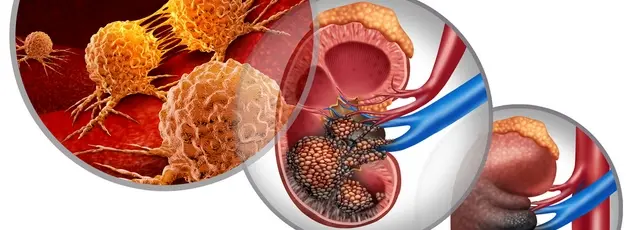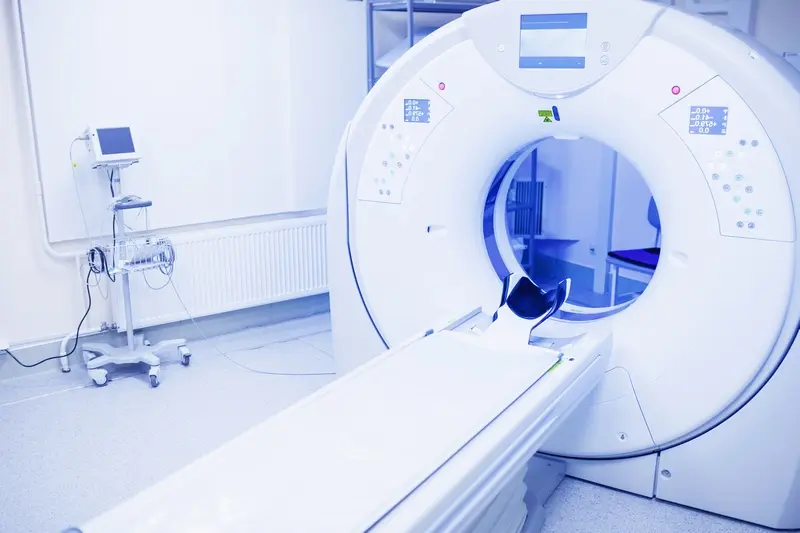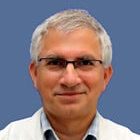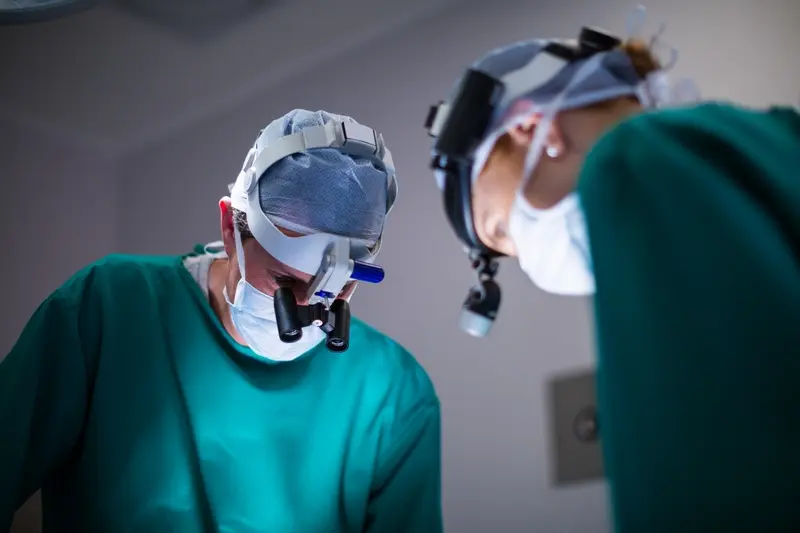Kidney Cancer Treatment in Israel

The kidney cancer diagnosis is not confirmed in 37% of patients who come to Top Ichilov from abroad. The duration of evaluation for kidney cancer in Israel, medical center Top Ichilov: 3-4 days, price: USD 2,913.
Kidney cancer treatment in Israel is provided by a multidisciplinary team including:
- Urologic oncologist, Professor H. Matzkin;
- Urologic oncologist/surgeon, Doctor G. Keren Paz;
- Radiation therapist, Doctor T. Rabin.
Surgery: partial nephrectomy using the Da Vinci Xi surgical robot.
Local therapy: cryoablation, radiofrequency ablation.
Radiation therapy: stereotactic radiotherapy.
Targeted therapy: medications: sunitinib, sorafenib, pazopanib, cabozantinib, lenvatinib, bevacizumab, axitinib, temsirolimus, everolimus. Protocols: cabozantinib (Cometriq) + nivolumab (Opdivo), ipilimumab + nivolumab and pembrolizumab (Keytruda) + axitinib (Inlyta), introduced in 2022.
Immunotherapy: aldesleukin (Proleukin), avelumab (Bavencio).
Biological therapy: savolitinib medication introduced in 2022.
The Program Of Kidney Cancer Diagnosis In Top Ichilov
Day 1: The Patient’s Initial Consultation
The initial exam and consultation, health history and its compilation in Hebrew, issue of referrals for instrumental examinations and laboratory tests (Doctor I. Molchanov, Head of the Department of Diagnosis).

Upon the first visit to the clinic, the patient’s tissue samples in the form of histologic preparations (on slides or in paraffin blocks) are immediately sent over to the laboratory for analysis. If the Top Ichilov patient has no histopathology specimens of tumor tissue, they may undergo biopsy right on the spot, at an extra cost.
Day 2: Diagnostic Procedures
Accompanied by a coordinator-interpreter, the patient undergoes instrumental examinations and tests recommended by the physician.
Laboratory tests:
- Blood tests (complete blood count, biochemistry and tumor marker tests). Doctors pay special attention to the levels of red blood cells, white blood cells and hemoglobin. A decrease in these levels may indicate suppression of hematopoiesis. This is a potential contraindication for chemotherapy. An increase in creatinine levels is a sign of kidney dysfunction. In this case, the patient should not receive any contrast dyes for CT. The levels of the TU 2M-PK tumor marker are also measured. Increased TU 2M-PK levels may show that the cancer has recurred or spread beyond the kidney.
- A urinalysis combined with a blood test helps detect inflammation or infection. These may be the cause of hematuria or pain.
- Abdominal ultrasound. This study provides the physician with the necessary information on all the structural changes in the kidney and nearby tissues.
Day 3: Development of a Treatment Plan
On day 3, the patient undergoes positron emission tomography (PET) or computerized tomography (CT). Imaging studies are planned considering a number of conditions:
- At least 2-2.5 weeks should pass after the completion of chemotherapy or hormone therapy.
- About 5-6 weeks should pass after the surgery or the completion of a radiotherapy course.
Professor H. Matzkin studies the exhaustive results of diagnostic procedures and laboratory tests, summarizes the information, develops the strategy for further treatment procedures and, if necessary, refers the patient to a physician of the corresponding specialization: surgeon – Doctor A. Zivian, radiologist – Doctor D. Matseevski.
Duration of staying in Israel for a complete evaluation: 3-4 working days. Price: $2,913.
✓ Right Now: Get your free consultation with a Top Ichilov physician
It is important to correctly determine the type of the disease before starting treatment in the country of residence. Consult an Israeli physician right now, free of charge. Find out the prices for the necessary diagnostic procedures in Top Ichilov.
The Advantages Of Kidney Cancer Treatment In Israel
- Accurate diagnosis. The diagnosis is not confirmed in 48% of patients who come to Israel for treatment. The reasons may vary:

- The tumor is benign. In this case, the patient needs a different treatment program and, probably, monitoring.
- The tumor is malignant, but the type of cancer cells has been determined incorrectly. This leads to the prescription of a wrong chemotherapy protocol.
- Sometimes, the diagnosis is correct, but the material for examination has been taken from another patient.
- PET/CT. Cancer diagnosis in Israel includes the active use of combined positron emission tomography and computerized tomography (PET/CT). This study helps detect even very small tumors as well as determine the location and spread of metastases. This allows for more extensive use of minimally invasive and organ-preserving techniques. In Israel, the treatment strategy is developed by an oncologist. The oncologist, not the surgeon (though it happens in some countries) decides whether surgery is required.
- Timely treatment. Only 1-2 days pass between the diagnosis and the start of treatment for cancer patients.
- Biological drugs. Kidney cancer treatment in Israel includes the use of biological drugs. These are the most advanced developments of the modern oncology. These drugs stimulate the patient’s immune system to fight the tumor and prevent cancer recurrence. Prior to the start of treatment, the specialists use the biological drugs on a small sample of the patient’s tissues. If this test proves successful, the effect of the biological drugs is extended onto the whole body.
- Team approach to treatment. Kidney cancer treatment in Israel implies decision-making by several physicians, including foreign specialists. This greatly improves the accuracy of diagnosis and the effectiveness of treatment.
- Simultaneous use of different treatment protocols. If required, an Israeli physician may step away from one treatment protocol and combine several protocols most effective for this very patient.
The Physicians Who Treat Kidney Cancer In Top Ichilov
Treatment and examination of kidney cancer patients in Top Ichilov are provided by the leading Israeli oncologists:

Professor Haim Matzkin, famous urologist, urologic oncologist, urologic surgeon. For several years, has been included into the top list of the country’s best physicians according to the Forbes magazine. Performs all types of urologic and uro-oncologic surgery.

Professor Ofer Merimsky, world-class expert in malignant tumor therapy. Directs a multidisciplinary team that provides osteosarcoma treatment according to the advanced protocols. Specialist in kidney cancer treatment.

Professor Yuza Hen, urologist, sexual health specialist, leading expert. Also provides therapy for kidney conditions including inflammatory diseases.

Doctor Irina Stefanski, oncologist, Head of Chemotherapy Division, Deputy Head of Oncology Department. Professional experience in oncology: about 27 years. One of the best Israeli specialists in comprehensive cancer therapy.

Professor Doron Schwartz, leading Israeli nephrologist, has been working in this field for over 15 years. Head of the Department of Nephrology and Dialysis at the Ichilov Medical Center. Was included into the list of Israel’s best physicians compiled by the Forbes editorial staff. Specializes in kidney cancer treatment.
3 Kidney Cancer Treatment Methods Used By The Top Ichilov Doctors
The Top Ichilov Clinic offers the entire range of cancer treatment methods in Israel including minimally invasive procedures. The physicians here perform both robot-assisted and conventional open surgery. The doctors select the most appropriate immunotherapy and targeted therapy drugs as well as radiation therapy regimes. The selection of kidney cancer treatment options by the Israeli specialists depends on the nature of the malignant tumor:
- Treatment for small renal tumors;
- Treatment for large tumors;
- Treatment for metastatic kidney cancer.
Treatment for Small Tumors
- Active surveillance. In clinical practice, doctors often detect growths no larger than 4cm. These small tumors usually do not require immediate treatment. The patient undergoes regular imaging studies: CT, MRI, or ultrasound. If the tumor is not growing, the monitoring may continue in certain cases. Active surveillance is recommended for patients who suffer from chronic conditions or are unable to tolerate medication or surgery. It is known that many renal growths are benign. Besides, even cancerous tumors are not always aggressive so this approach is usually reasonable.
- Ablation. If the patient has a small tumor, the doctor may recommend ablation. During the procedure, the physician inserts a needle directly into the growth and either heats up of freezes tumor cells. The heat and the cold destroy abnormal tissues. The minimal invasiveness of this procedure is its main advantage. The patients experience minimal side effects and recover very quickly.
- Surgery. The surgical removal of the growth with preservation of as much healthy renal tissue as possible remains the gold standard of treatment. This type of surgery is performed at the Top Ichilov Clinic more often than other surgical interventions. The purpose of the renal tumor treatment is to remove potential cancerous cells, preserve kidney function and ensure the highest possible quality of life for the patient.
Treatment for Large Tumors

Large growths require complete removal of the affected kidney. There are 2 ways to remove the kidney:
- The minimally invasive method: the surgeon uses cameras and tiny instruments inserted through the small incisions;
- The conventional method: the surgeon makes a large incision to remove the affected kidney.
Minimally invasive surgery may be also performed using a special robot.
It is customary for the specialists of the Top Ichilov Clinic to differentiate between low-risk and high-risk conditions. If the doctors suspect that the growth is malignant and may recur or spread, they remove not only the kidney, but also nearby lymph nodes.
Treatment for Metastatic Kidney Cancer
Patients with cancerous tumors that have spread into other internal organs are prescribed multidisciplinary treatment. This means that cancer treatment is provided by doctors of various specialties. In certain circumstances, treatment starts with surgery at the Department of Urology. Sometimes, surgery is performed by surgeons from different departments. As a rule, the surgeon removes not only the affected kidney, but also the metastases of the tumor.
In most cases, doctors additionally prescribe medication, most often targeted therapy, to selectively treat cancerous cells and simultaneously preserve healthy tissues. Scientists pin high hopes on kidney cancer immunotherapy. This type of treatment is also used in Israel. A medical oncologist and a urologist are responsible for the choice of medication.
Some patients may benefit from radiation therapy. Radiation is mostly aimed at the secondary lesions, for instance, in the bones or in the brain. Sometimes, doctors consider cryoablation, or freezing, as a way to treat secondary tumors.
Kidney Cancer Treatments Introduced In 2024
- Biological drug combination (ipilimumab and nivolumab). The new treatment protocol is used for metastatic renal cell cancer. The two drugs that belong to immune checkpoint inhibitors, showed antitumor activity in kidney cancer treatment in clinical trials.
- Savolitinib. This biological antitumor drug used in lung cancer treatment proved effective against papillary renal cell carcinoma, a type of primary kidney cancer. Clinical trials show that it is safer and more effective than Sutent, the drug currently used for this type of cancer.
How To Receive Kidney Cancer Treatment In Top Ichilov
- Call the clinic right now: +972-37621629
- Or fill in the form below. Our doctor will contact you within 2 hours.

Publication Date:
















